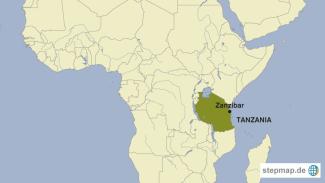Tourism
Turtle conservation promotes eco-tourism

Zanzibar is known for its white sandy beaches, diverse culture, interesting history and – above all – for its spices. On top of that, it hosts abundant sea life on its coasts: five of the world’s seven species of sea turtles can be found in Tanzania. Two species, the Hawksbill turtle and the Leatherback turtle, are critically endangered, while the Green turtle, the Loggerhead sea turtle and the Olive Ridley sea turtle are classified as endangered. Sea turtles have a long life and reach maturity late. This makes them particularly vulnerable to human intervention.
According to Narman Jidawi, a researcher at the Institute of Marine Science of the University of Dar es Salaam, Hawksbill turtles have traditionally been hunted around Zanzibar for their attractive shells and Green turtles for their meat. “All species of sea turtles are endangered, and their population is constantly declining. Around 85 % of all sea-turtle deaths are caused by human intervention including poaching for meat and eggs,” she points out.
Trawling nets for fishing are deadly traps for sea turtles. According to Jidawi other dangers include heavy human construction activity along beaches for tourism purposes, which is “often done without considering the needs of turtle populations”, and plastic waste floating in the ocean. When marine turtles swallow it, they die. Disturbance of nesting and foraging habitats, lack of adequate protection, limited awareness and pollution are the main threats to turtles in Zanzibar.
But tourism is not only a danger – it can be of help for the dwindling species. Maabadi Jaffar Mwadini of the Zanzibar Commission of Tourism calls this “cultural tourism” or eco-tourism, because foreigners do not only go to the beach, but also visit environment projects. One attraction for tourists is the Mnarani Marine Turtle Conservation Pond at Nungwi village in the north of Zanzibar. It is managed by a community-based NGO that was established in 1993.
Currently, the Nungwi village turtle conservation group has about 40 sea turtles in their pond and attracts many tourists, marine researchers, local and foreign students as well as volunteers. Apart from the protection of turtles and the environment, the NGO participates in activities such as beach clean-up, beach patrol and nest protection as well as in community-based tourism.
Ali Shaaban Juma is a journalist and lives in Zanzibar, Tanzania.
rafikifumba1@hotmail.com
Link
Mnarani Marine Turtle Conservation Pond, Zanzibar:
http://www.mnarani.com/











